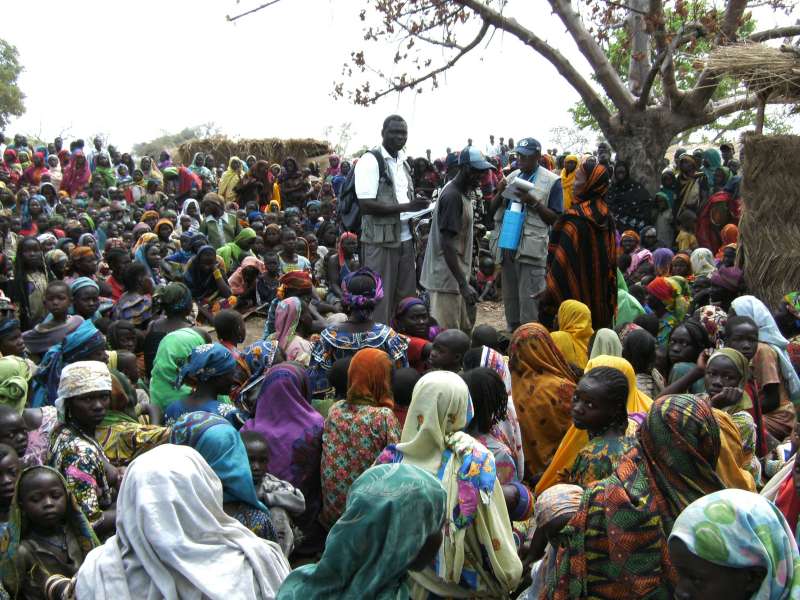When one is faced with two evils, it is natural to focus attention on the greater evil. The evil of Boko Haram is perhaps unarguably the greatest evil Nigeria has to confront at this time. However, Boko Haram is a cause that has rippled effects on almost all spheres of our national life. Particular focus must be beamed on the plight of persons that have been internally displaced as a result.
Different statistics are being touted as to the actual number of Internally Displaced Persons (IDP). The National Emergency Management Agency (NEMA) rapid assessment as of March, 2014 put the registered figure at 254,812 in the three states (Borno, Yobe and Adamawa) under emergency between May, 2013 and March, 2014. An estimated 1.6 million people have fled their homes since Boko Haram began her onslaught on Nigeria(ns). A total number of about 3.3 million people have been internally displaced by violence and conflict in Nigeria. This figure represents ten per cent of the global number of displaced persons worldwide.
Thousands of people are scattered all around overcrowded camps and settlements in Abuja, Taraba, Bauchi, Jigawa, Benue and other areas of the north of Nigeria. A large percentage of this group consists of women and children. They live in sub-human conditions and with relief materials in short supply. These gatherings lack proper sanitation and are a perfect breeding ground for diseases such as cholera, colds and fevers. Such IDP’s are also prone to trauma and other psychological/mental health issues.
Worthy of note also is that there are people that have been “externally displaced”. Not only are people fleeing such terror plagued territories to other parts of Nigeria, there are reported cases of people fleeing to neighboring countries as Cameroun, Niger and Chad.
While individuals, groups and government agencies may be trying, more still needs to be done – especially by government. While IDP’s are forced to cope with such dire straits, our political class still receives jumbo pay. In late October, the Senate announced a donation of a paltry #20 million towards the rehabilitation of IDP’s. This is from a National Assembly that appropriates an annual budget of about #150 billion. This is from a National Assembly that has never failed to conceal their earnings because it is outrageous. It is a shame on all our rulers that individuals, groups, religious organizations, charities and other humanitarians and agencies are seen to be doing more to ameliorate the plight of these IDP’s. It is about time the remuneration of our political office holders is reviewed to reflect our present austere circumstances. Nigerians must begin to clamor for such a review to the present level of our civil service. Our rulers cannot continue to complain about paucity of funds while they receive jumbo salaries and allowances that are paid as at when due.
Current trends do not indicate that the Boko Haram war will abate anytime soon. Recent trends of Boko Haram claiming territory can be equated to more IDP’s. The welfare of IDP’s must receive as much attention as the war itself. While the government keeps assuring Nigerians that the war will be over soon, Nigerians know that such promises cannot be held onto. One would have expected that by now, there should be a high level collaborative and interactive effort between the federal government, the states of residence/origin of these IDP’s and the IDP’s themselves to evolve ways of reintegrating them into other communities that can be accepted as their new abodes and where they can find new sources of livelihood. However, this is not the case as what we witness is throwing of blame tantrums between opposing political parties and governments.
If our government cannot protect IDP’s from the menace of Boko Haram, they should at least be able to make their lives bearable. It is no fault of these IDP’s that they have been compelled to flee their places of abode and livelihood. It is no fault of the children that have abandoned their education. It is no fault of IDP’s that they have become refugees in their own country. Adequate provision of food, water, shelter and clothing is paramount.
It is my hope and prayer that this Boko Haram war will come to an end soon such that IDP’s will be able to return to their original habitats and livelihoods. I also hope that the federal government and concerned state governments will have plans and resources in place by then to reintegrate and ensure a smooth transition into their original communities and livelihoods. May God help us!
Toks Ero blogs @ toksero.org

